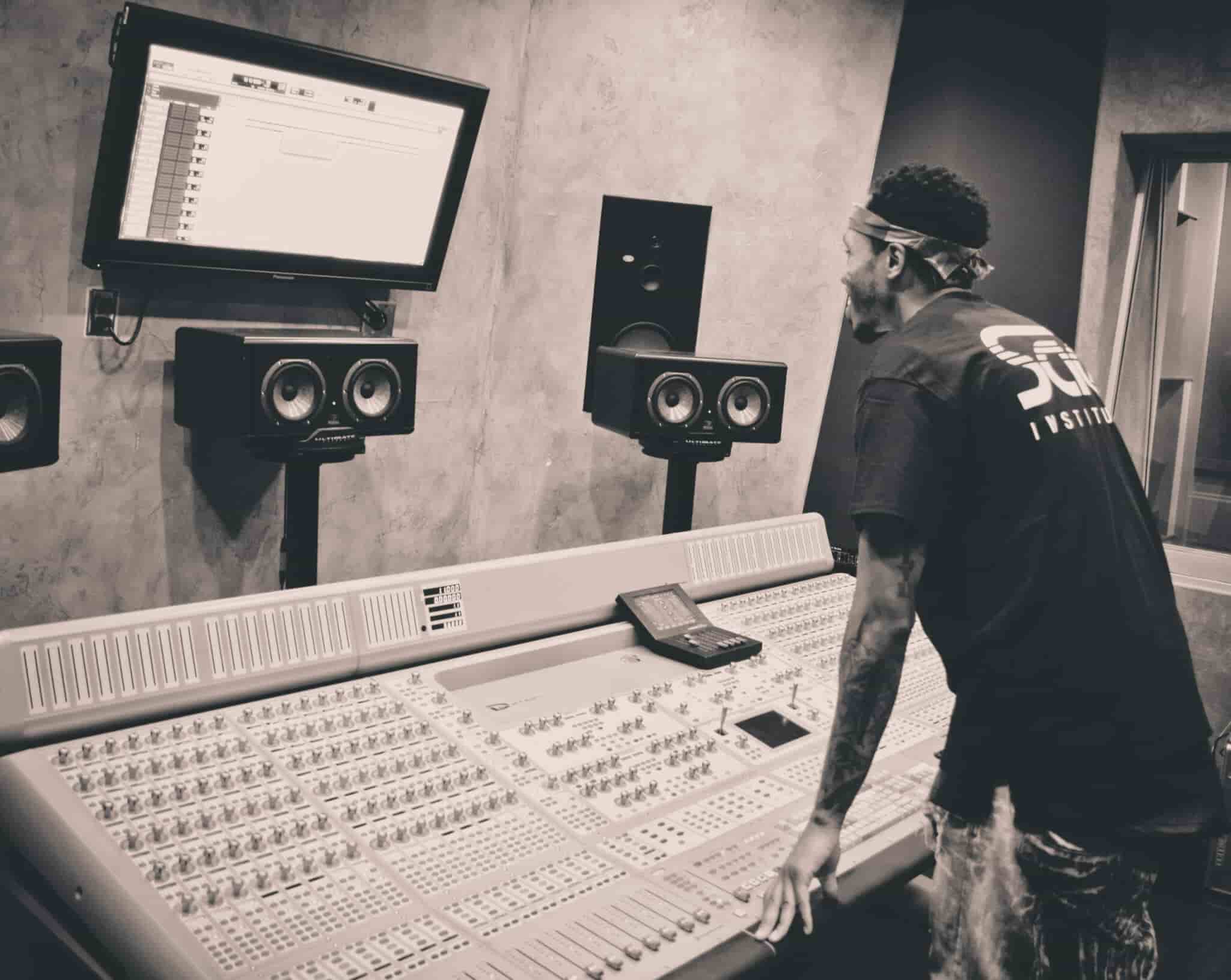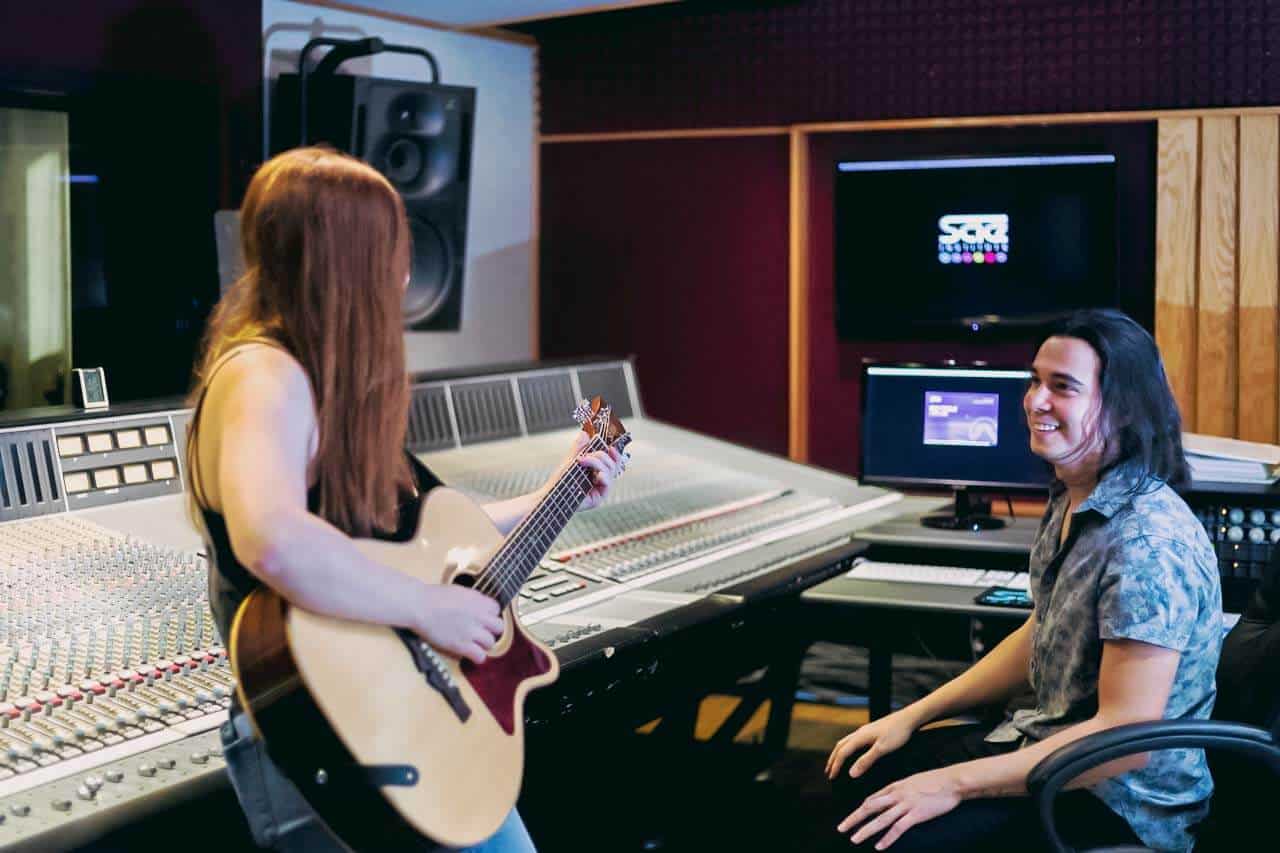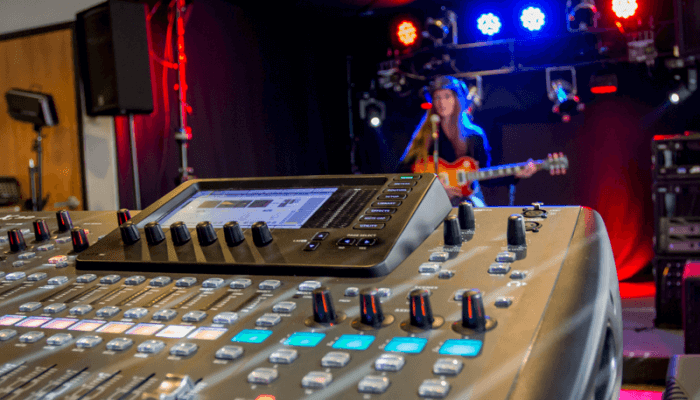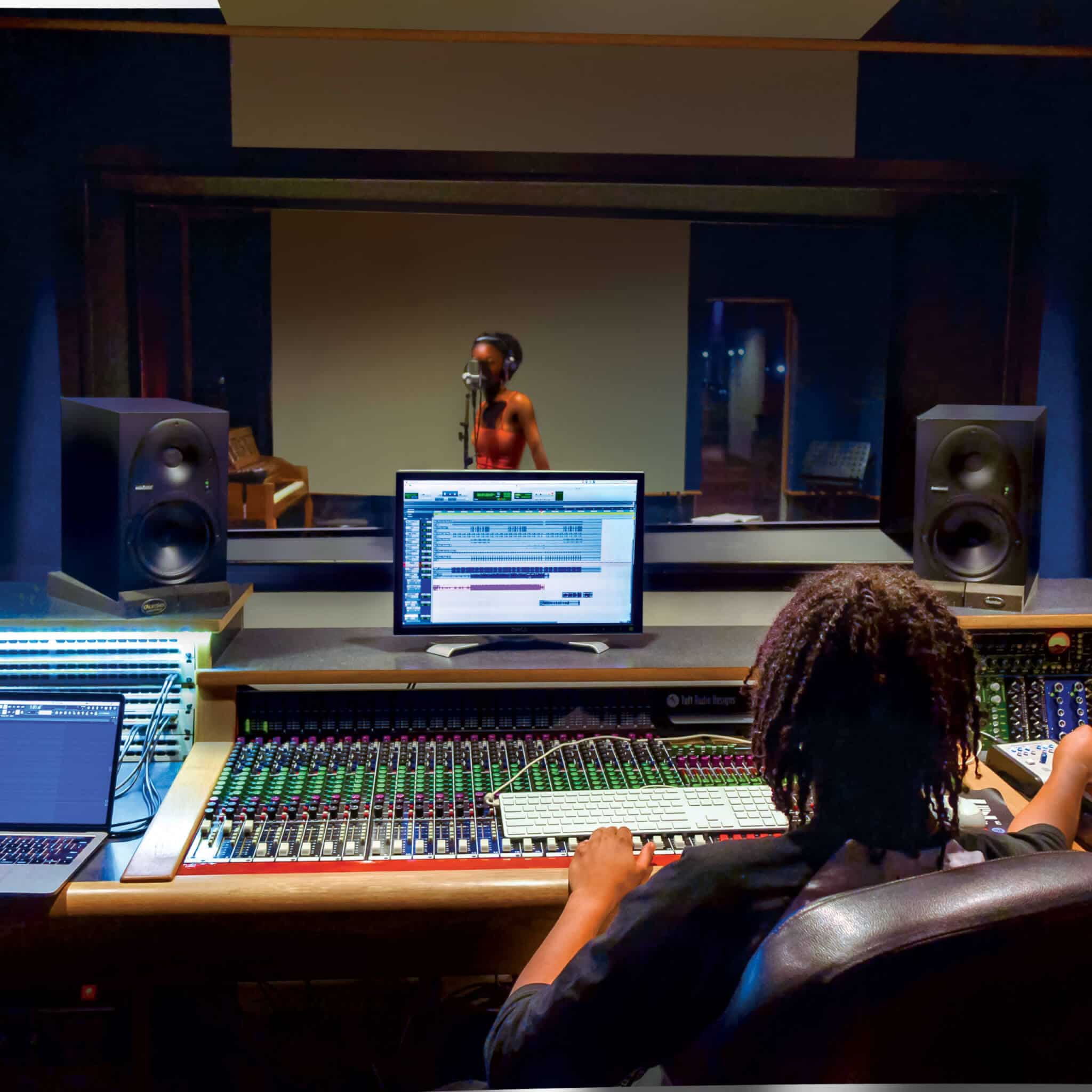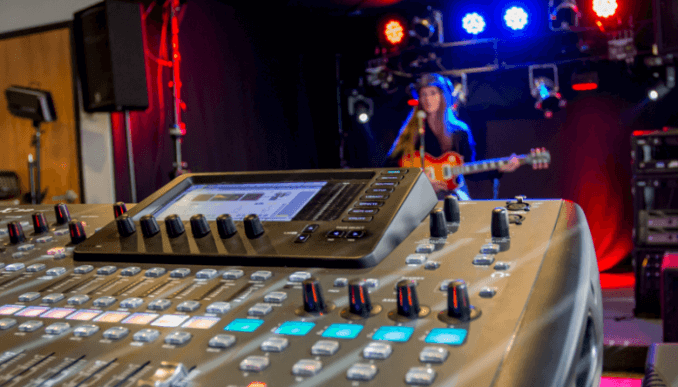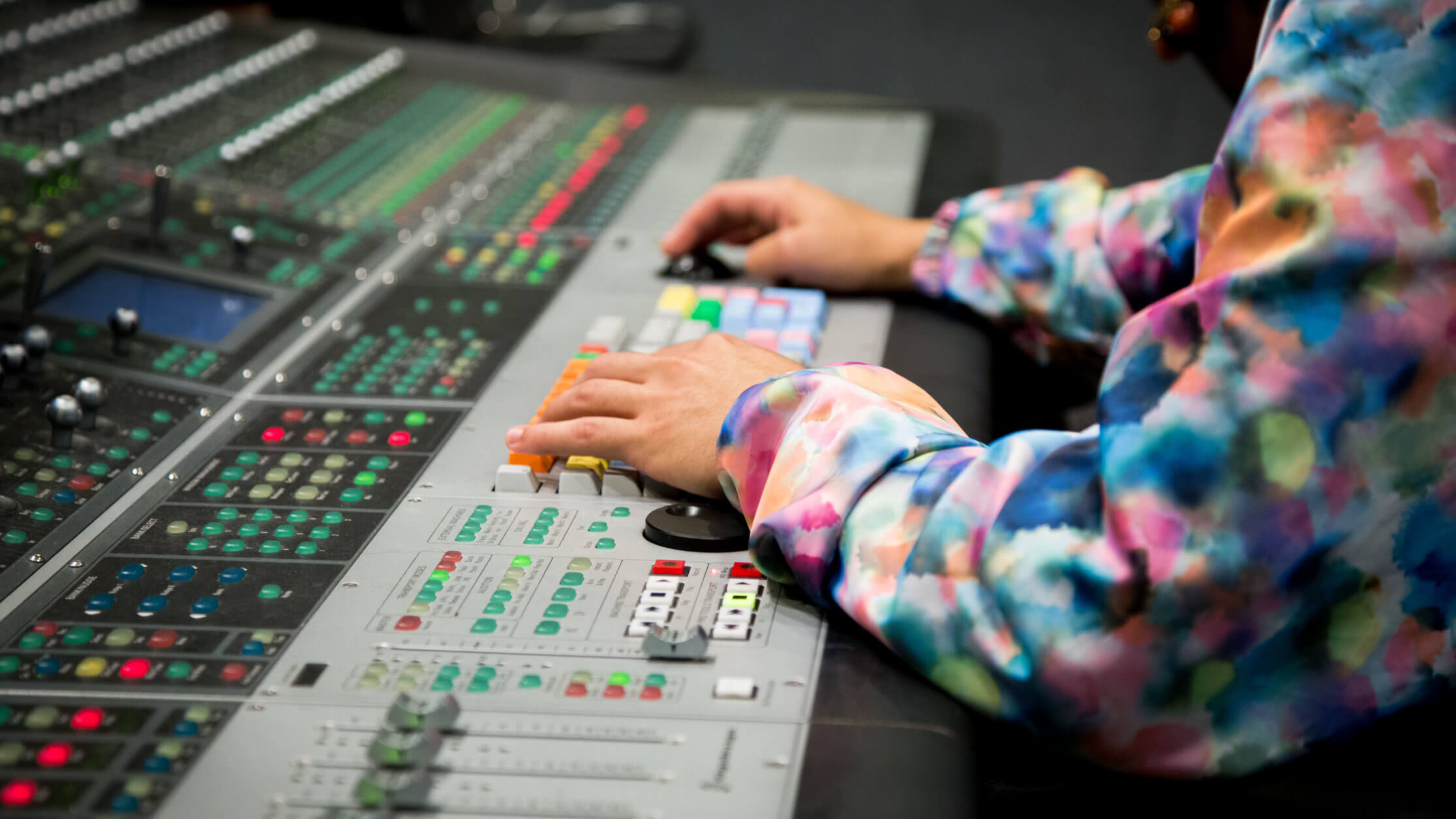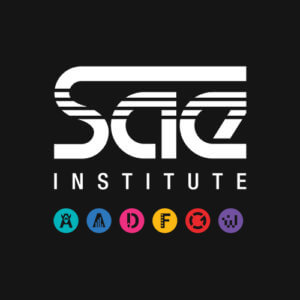
If you have a keen ear, a passion for sound and you’re considering a career in audio production you probably want to know the key skills necessary for a career in today’s audio industry. Having the right audio skills can help you find the right career opportunities in the audio industry.
What are the skills needed for a career in audio?
Like any profession, having the right skill set and knowledge to succeed in audio is critical. SAE Institute prepares students with both the hard and soft skills required to maneuver the creative arts industry.
HARD SKILLS
Hard skills are the technical hardware and software skills required to operate audio equipment. Having the knowledge to victoriously record sounds and the ability to combine different elements to form one main track is an example of a hard skill necessary for a career in audio.
Studio Production
Studio production skills are necessary for the process of recording and producing video in a stationary environment. Being knowledgeable in audio production, studio recordings, equipment, digital audio workstation operations, and mixing techniques are some of the skill-sets needed to effectively produce a project. Our courses are designed to prepare students with not only theory-based information but hands-on experience as well.
Mastering Media
Mastering is the final step of audio post-production. It’s the icing on the cake at the end of a project. SAE Institute’s Mastering and Media Preparation course is designed to explore concepts and tools used in the final compilation and mastering of media, including vinyl, CD, DVD, and various web and mobile technologies.
Music Theory
Music theory is the foundation of how music is communicated. It’s the agreed language musicians use to talk about music as a practice. Mastering the basics of music theory gives students skills in music terminology, and the basics of rhythm, harmony, and chord progressions in popular music. For careers in audio such as, music composer/arranger, musician, and music theory professor, these skills are incredibly important.
Game Audio
Game Audio is the art, science & technology of producing and configuring sound for games and interactive media. SAE Institute Game Audio classes focus on the creation and integration of game audio within interactive environments. Students walk away with the skills to work in gaming fields such as designing video game sound effects, audio enhancements, and composing and producing audio for games. Both SAE Institute diploma and degree audio programs are designed to help you build the foundation needed for a career in audio gaming.
SOFT SKILLS
Soft skills are characteristics used by audio professionals while working alongside other individuals in the entertainment field. Skills like communication, adaptability, leadership, time management and teamwork are capabilities that will allow you to excel in areas like music production, video game development and live performance management.
Interpersonal Skills
Interpersonal behavioral skills are thought of as people skills. These traits are sought after by companies across various fields and can be carried over to any position. For example, good troubleshooting skills are a valuable soft skill sought after in the entertainment industry. The ability to work with people from different generations and collaborate with individuals with various backgrounds will help you succeed in many sectors of the audio industry. SAE Institute’s Career Services Team will also help guide you to the right training to sharpen your skills in these areas.
Problem-solving
Problem-solving is a skill that involves discovering, analyzing, and solving problems. In the world of audio, it’s essential to know what software connects to hardware correctly to effectively resolve issues. The ability to assess situations quickly and provide accurate solutions will show that you’re an asset to hiring managers and producers.
Communication
Communication is key in any business. Being able to effectively articulate the vision an artist has for a project with producers and managers makes for a smooth work environment and allows all parties to feel heard. Keen speaking and listening skills are essential when collaborating and creating a strategy that works best for the team.
Adaptability
Honing the skill of adaptability allows one to pivot quickly to determine the right course of action. For example, when working with live performances unexpected changes may require you to quickly adapt a different approach to get the desired outcome.
Organization and time management
Whether it’s personal or organizational, anyone in the creative arts and entertainment field needs to have time management and organization skills. These skills will help when scheduling recording sessions, organizing personnel for events, completing deadlines to ensure audio content gets to producers on time, and managing computer files and equipment updates.
If you’re ready to take the next step towards a career in audio or the entertainment business feel free to explore the audio programs offered at various SAE Institute locations. Our admissions team is here to help you each step of the way.
